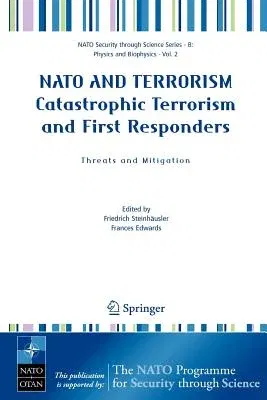NATO and Terrorism Catastrophic Terrorism and First Responders: Threats and MitigationPaperback, 13 September 2005

Qty
1
Turbo
Ships in 2 - 3 days
In Stock
Free Delivery
Cash on Delivery
15 Days
Free Returns
Secure Checkout
Part of Series
NATO Security Through Science Series B:
Part of Series
NATO Science for Peace and Security Series / NATO Science fo
Part of Series
NATO Security Through Science Series B: Physics and Biophysi
Part of Series
NATO Security Through Science Series / NATO Security Through
Part of Series
NATO Security Through Science Series / Sub-Series B: Physics
Part of Series
NATO Security for Science Series B: Physics and Biophysics
Part of Series
NATO Science for Peace and Security Series B: Physics and Bi
Print Length
204 pages
Language
English
Publisher
Springer
Date Published
13 Sep 2005
ISBN-10
1402035845
ISBN-13
9781402035845
Description
Product Details
Book Format:
Paperback
Country of Origin:
NL
Date Published:
13 September 2005
Dimensions:
23.39 x
15.6 x
1.19 cm
ISBN-10:
1402035845
ISBN-13:
9781402035845
Language:
English
Location:
Dordrecht
Pages:
204
Publisher:
Series:
NATO Security Through Science Series B:NATO Science for Peace and Security Series / NATO Science foNATO Security Through Science Series B: Physics and BiophysiNATO Security Through Science Series / NATO Security ThroughNATO Security Through Science Series / Sub-Series B: PhysicsNATO Security for Science Series B: Physics and BiophysicsNATO Science for Peace and Security Series B: Physics and Bi
Weight:
317.51 gm

